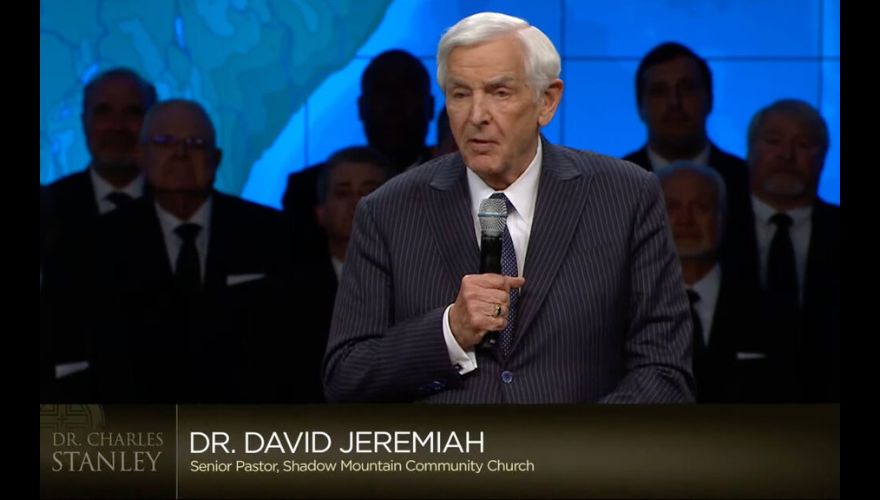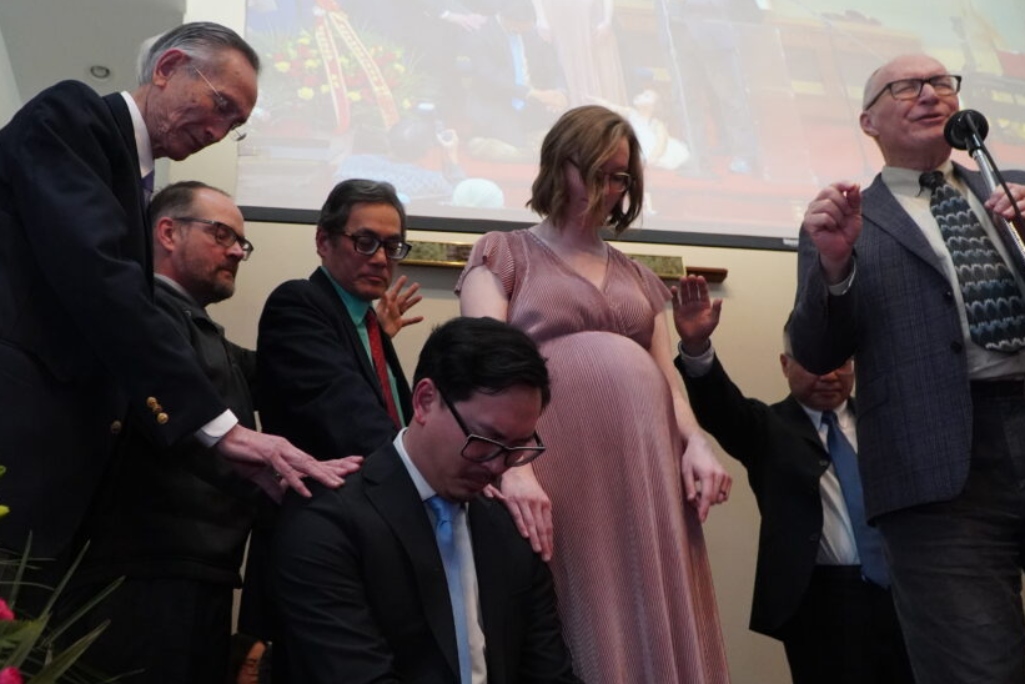
NASHVILLE (BP) — The Lord used many influences to bring North Carolina pastor Bruce Frank to faith in Jesus Christ. Family members, friends and coaches all played a role in helping Frank in his salvation journey.
Frank, 59, is one of the known candidates to be nominated for SBC president at the 2024 Southern Baptist Convention (SBC) annual meeting. He’s the senior pastor of Biltmore Baptist Church in Asheville, N.C.
Frank says he grew up in a good home, it “just wasn’t a Christian home” and they only attended church at holidays or special events.
While he was in high school in Tulsa, Okla., and Wichita Fall, Texas, his brothers became believers and the Lord used their influence to draw Frank to Christ as a senior in high school.
It was a basketball coach who led him to Lord.
“Somehow (I) found myself at a Fellowship of Christian Athletes meeting. … It’s just the sovereignty of God because I don’t know why I would have agreed to go,” he said.
It was there he “found out a bunch of the folks had been praying for me.”
After high school he headed to Texas Tech University to pursue a degree in finance, but soon that plan was no longer adding up.
During college he began making trips to South Padre Island with a couple of parachurch ministries for the purpose of sharing the gospel with those partying at the beach.
In his senior year, “God took the desire to go into any kind of finance stuff away, (He) replaced that with ministry,” Frank said.
Between college and seminary he moved back home to Wichita Falls and began attending church there. He met Morris Chapman who was then the pastor of First Baptist Church Wichita Falls.
Frank says Chapman “fast tracked” him toward ministry before he headed off to Southwestern Baptist Theological Seminary.
As he and wife Lori look back over their lives, they “never could have imagined what God would do, and we’re super grateful,” he said.
Doing more together
Frank recalls starting out at Blue Grove Baptist Church in Blue Grove, Texas, when he thinks of the value of the Cooperative Program (CP).
“In a more of a normative size church, it allows you to be a part of something also bigger than yourself. … Because there, you didn’t have the resources to fund missionaries or church plants all by yourself,” he said.
Through the Cooperative Program, Frank says, churches can come together and do more than they can do alone.
Biltmore Baptist, Frank’s current church, is fourth in CP giving among North Carolina Baptist churches. The church promotes CP in dozens of ways, ranging from mission work to personal testimonies to finding ways to tie it into the church’s vison and announcements.
“The stated purpose of the SBC is about evangelism and missions,” he said.
Cheerleader and unifier
Frank takes a direct approach to the role of SBC president. “The president basically appoints people to committees, he runs the annual meeting to some degree, is the face at times,” he said.
He points to his website where he’s laid out a four-part platform:
- A focus on the Great Commission
- A tenacity with sexual abuse reform
- A renewed commitment to an uncompromising and cooperative complementarianism
- An emphasis on church revitalization
“I think to some degree, the president can sort of help set the priorities and at least be the cheerleader for what is the unifying vision of the SBC,” he said.
He says among characteristics he would look for in potential candidates for committees would be a focus on evangelism. He wants people who desire, “to see those 20,000 churches that hadn’t seen a baptism in a year,” to experience one.
Frank was appointed by then-SBC President Ed Litton to lead the Sexual Abuse Task Force in 2021-2022. Their recommendations set in motion the work of the Abuse Reform Implementation Task Force (ARITF) that has been working since 2022.
Frank said he likes the toolkit that has been unveiled by the ARITF. “I do think the culture has changed to some degree in the last five, six years for the better,” he said. “There’s been a lot of stuff good for prevention, still a ways to go.”
Calls for greater transparency in the SBC are really an acknowledgment that trust is low.
“Somehow … there’s not enough information getting to the people in general,” he said. “And so, like anything, if people don’t have the information, they will create a narrative.
“Maybe it’s true, maybe it’s not true. And, so, at some point, if you have distrust with leadership, that begins to grow and that is where we are.”
Frank declined to get specific about what information should be released and how, but said, “if the messengers want that, then I would support it.”
On the role of women in pastoral ministry and the so-called Law Amendment, Frank clarified that he is complementarian, as he believes the vast majority of Southern Baptists are.
However, he is opposed to the amendment that will be voted on in Indianapolis. He wrote a first-person piece published by Baptist Press (BP) in February expressing his thoughts before he was announced as a possible presidential candidate.
“I think we can do better as an expression of our complementarianism. I mean, we can do much better than the Law Amendment,” he told BP.
Article III of the SBC Constitution lists five points that place churches within the definition of cooperation with the SBC. The amended motion calls for a sixth, adding churches that affirm, appoint or employ “only men as any kind of pastor or elder as qualified by Scripture.”
It was approved by messengers to the 2023 SBC annual meeting and is to be presented for a second vote in Indianapolis.
“We probably do need to have an expression of it … maybe that adds clarity to BF&M (Baptist Faith and Message) 2000,” Frank said.
“My concern is because we have not defined what is explicitly pastoral in function … it’s fair game for any kind of saying that person, although not called a pastor, she’s functioning like a pastor,” he said.
“The Bible says a bunch about what all church members are supposed to do. So what is exclusively pastoral?” he asked.
“This is poorly written, easily weaponized and will lead … to what I would call extrabiblical action.”
If given the opportunity to lead, Frank said he would call churches to focus on evangelism and missions. He says the greater help will come from the front lines and he will solicit the help of state conventions, local associations and churches.
“I don’t know of a single church that is content with like, ‘You know what, we’re not making a dent in lostness in our community.’ I do not know a single church,” he said.
The 2024 presidential election is scheduled for Tuesday night, June 11, at the Indiana Convention Center in Indianapolis. Candidates can be nominated to serve as SBC president until the time of the vote.
(EDITOR’S NOTE — Brandon Porter serves as Associate Vice President for Convention News at the SBC Executive Committee.)


